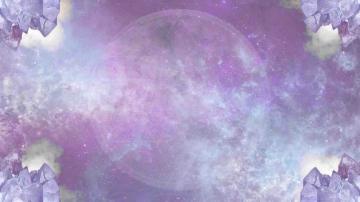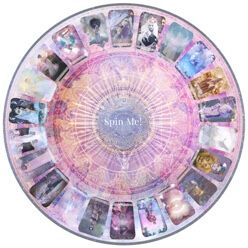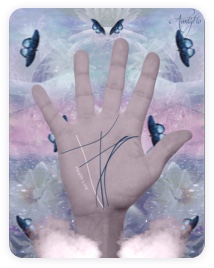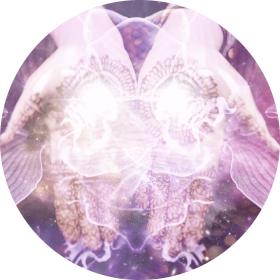Dream Anaysis

Uncover Hidden Dream Meanings
In this article, I am going to discuss the secret elements that appear in your dreams. People, places, language and objects. Then I will move onto a more general meaning of dream analysis. Most of our dreams are connected to things that happened to us in our daily lives. These could be relationships, hobbies or even buildings.
Understanding your dreams is something that I been working on for the last 30 years. Ever since I was a little girl I've been fascinated by dreams. I can even recall one of my earliest memories was having a dream about a house I later moved into. I was startled by the dream during my childhood which meant that this was a path that I followed. The more I studied my dreams more fascinated I become.
Dreams have significant layers of meaning. I am here to help you analyze your dreams, so you can understand them fully and this will hopefully help your daily life. This I often say that it is important to let your dream be your teacher, try to avoid glossing over any specific details. You will find the deepest messages hidden in your dreams. Here are some common traits that you can relate to in dreams, understanding these elements is the first stage of dream analysis.
People:
People often appear in our dream when we are searching for our true identity. If you are drawn to the specific character during the dream then this could be your own self-awareness. It could also be that the different people featured in your dream is a reflection of “how you feel about yourself.” For example, if you see a strange child who is crying this could represent the fact that you are not feeling happy with a certain aspect in your life. The behavior of your “dream people” usually reflect the real (waking life) relationship with the person if you know them. I had an email from a reader who kept having a repeating dream of their father shouting at them. This dream analysis showed that this guy was having problems with the relationship with his boss at the time which was reflected in the fact that he was seeing him shouting!
Places:
You may find that people act out the stories in your dream and that “places” appear in your dream state. Such as landscapes or familiar places or buildings. If you are visiting a location that you have been to in waking life this is about exploring possibilities and potentials.
As you make your way through various dream places it can mean that you're exploring how you're going to deal with life's problems. If you notice that you often see urban locations such as towns and cities this can indicate that you are looking for something complex in life. To see rural locations or wild areas invoke more of an “opportunist” approach to life. The “place of your dream” of is important. It can give a clue to your dream analysis.
Objects:
As well as people and places that are created in the dream world objects may also appear. The dream objects are what I classify as a symbol. The word symbol comes from the Greek word called “symbolon” which translated means a coin or token which is broke in two.
These two tokens (objects) are given separately to two people. The tokens could then be matched in order for these people to have a connection, the reason why mention this is that dream analysis is like a token. In that, the one half of the clue is in your subconscious mind. In our modern world objects can provide us with symbolic value. Our handbags, phones, and cars are material possessions that use on a daily basis. It is not therefore uncommon for us to dream of objects being featured.
Language:
Dreams often contain words or spoken English. Our dreams can often speak to us using puns or valuable words. If you do hear the English language or someone communicates with you during the dream, it is important to take note. We often find ourselves building up a story in our dreams.
Animals:
When we are looking for a creative way to express our feelings, animals often appear in our sleep. Animals often reflect our unspoken power and we can create a whole range of animals during our sleep. The threatening scary domestic pets through to tigers and lions. Dreaming of our pets is very common and this is associated with our own comfort levels in waking life. Animals found in our dreams can often give us a clue to how we need to feel more nurtured in daily life. Snakes are a very common dream and indicate our own unconscious awareness.
Accidents:
car accidents or plane crashes are common dreams. This is what I consider a warning dream. An accident or near accident often implies that you are in danger of encountering some type of loss. Accidents can be quite powerful vivid dreams and they hint at the possibility that you are being forewarned of something in the future.
For years I have been amazed by how dreams work and somewhat intrigued by the unsolved mystery around them. That is why I have written my 5,000 word dream analysis dictionary, I have gained resources from many ancient dream dictionaries so don’t forget to look up your dream symbol in my dictionary.
When we wake up we often use Google to understand the real meaning of dreams, desperately trying to give them meaning, interpret them and discover if they might help us predict the future. However, you can’t help wondering if dream analysis helps us in our daily lives. After all, we all dream! Our dreams can be crazy, interesting and even scary. Sometimes we have dreams that haunt us every night and see the same thing over and over.
Many people write to me to ask how they can better understand their dreams.
- Some people keep a dream journal so they can write down their dreams and elements they find important.
- Did you know that if you don’t lay quietly after you get up you are likely to forget your dreams?
Dream analysis dates back to Egyptian times. The most important question people ask me is: do dreams really mean something? Or they’re just a product of our own mind? Different dream experts offer different explanations about this theory (such as Carl Jung and Sigmund Freud) and this has resulted in different interpretations based on dream analysis from psychologists. Dream analysis is a serious activity! According to many psychologists, dreams represent an interesting source of information about people and their psyche. Dreams can often speed up the therapeutic process, which is pretty cool!
What’s the purpose of dream analysis?
As I mentioned earlier, dream analysis is a therapeutic process and a therapeutic tool for speeding up the “healing” process. The manifest content during sleep represents hidden fears and suppressed emotions. behind the dream and the examination process are exploring the dream’s content which is known as dream analysis.
What’s the theory of dream analysis?
According to dream analyst Carl Jung, your dream can help you figure out what hides in your mind – and to a lesser extent what do you really want out of life. Your dreams can help you gain insight into your soul and personal wounds. And, above all helps you heal them, if possible, of course! People who support and practice this method believe that dream analysis can really help you know yourself better.
Dream analysis is often used to uncover the hidden fears and desires that come from different sections of your mind. A dream can help you improve as a person and become the “best version” of yourself.
How does my mind work according to dream analysis?
No matter what everyone says and believes about dreams, psychological researchers have not found the purpose of dreams and answer to the question: where do they come from?
So far, they know about dreams as much as you do. For instance, they know that dreaming occurs during sleeping hours. But you can dream about something even if when you are not sleeping. For example, before I wrote this article, I took a nap around 3 pm and had an intense dream about being in jail. This breaks the myth that “dreaming” only occurs during night hours only! However, researchers have discovered that the most intense and vivid dreams happen during REM sleep. If you don’t know what REM stands for, it represents “Rapid Eye Movement.”
Another sure thing we know about dreams is that they happen during an important process crucial for our well-being and functioning. Some researchers and psychologists claim that a dream represents the interaction between the unconscious mind and the conscious mind.
It’s also believed that dreams allow your mind to interact and transfer information across different levels of consciousness. Furthermore, it’s assumed that maybe your dreams have the power of solving your experiences and emotions. For instance, after experiencing some traumatic event, you can have nightmares associated with that event. Your nightmares will continue until you find a solution for your emotional pain and confront your hidden feelings.
Important pioneers in dream analysis:
Did you know that the earliest practice of therapy was psychoanalysis? Dream analysis is one of the most famous practices in psychoanalysis. It’s still popular among psychoanalysts, however, any mental health worker can use this practice in their therapeutic process. Most important pioneers of dream analysis are the early psychoanalysts I will quickly go over who they are.
Carl Jung: Have you heard of Carl Jung? It’s one of the most popular psychoanalysts of all time, after Sigmund Freud. In fact, he was a student and a believer in Freud’s work. However, just like any other student, Jung surpassed his teacher. He developed his own theories and beliefs.
Jung believed that dreams represent the key to unlock the unconscious. However, instead of thinking that the therapist is the expert like Freud did, he believed that the dreamer is the one who should discover all the hidden fears and emotions and interpret their dream.
Sigmund Freud: Freud, on the other hand, who is considered the father of psychoanalysis, believed that the therapist should be the one who can interpret the dream state. For those who haven’t heard of this genius, Freud represents the pioneer of dream analysis and psychoanalysis! He taught that dreams store the information people keep in their unconscious mind! His theory makes sense once you realize that traumatic events can cause nightmares. Freud also believed that dreams pave the way to the unconscious mind and have the power to improve a person’s functioning.
How can dream analysis indicate change?
As I mentioned earlier, dream analysis can help a person connect with their unconscious mind. How? Well, once the unknown gets into the conscious level of someone’s awareness, it’s not unknown anymore. This enables a person to process that content in order to boost their functioning and awareness. Are you interested in learning what happens in a session?
What’s the course of dream analysis session and what techniques does it include?
Most people have tried to dream analysis themselves. Meaning, there’s no particular set of rules on how to conduct personal dream analysis. However, experts assume that it’s best if a person doesn’t focus on their dream only but explore their personality and try to realize what’s the actual meaning behind their dreams. Still, for those who don’t know how to do it properly, it’s suggested that they visit a therapist who can guide them through the entire process. If you decide to visit an expert, he or she will use certain techniques.
For example, your therapist might ask you to write down your dreams or record them. This can help you note as many details of your dream as possible. However, you will have to keep the recorder or notebook near your bed, so you can use them right after you wake up! This is an important technique because you might forget your dream eventually and not be able to explore the content (I did mention this above). According to researchers, this technique improves dream analysis.
Next technique that experts use is trying to make you remember and feel all emotions and feelings from your dream. You should ask yourself how were you feeling while dreaming and try to figure out why. This is very important. Experts say that what feels in our dreams is what we can’t or won’t feel during waking life.
Once you recall the feelings and emotions from your dreams, you will start noticing details that match with your waking life. For example, you will notice the same themes that appear in both your dreams and waking life. Ask yourself if what you’re seeing and feeling in your dream has anything to do with how you feel in waking life.
What do your emotions reveal?
When you’re analyzing your dream, make sure that you consider all the details. Experts say that in dreams we can see parts of our personality and see our own “thoughts” in small portions in your dreams. Notice unexpected details that will help you gain better insight into your soul. This doesn’t mean that all the details have to be connected with you. You might notice certain people or figures that mean a lot to you in waking life.
Do dream dictionaries work?
You may be wondering if dream dictionaries and similar resources for interpreting dreams actually work. I have to say, yes, they do! They can help you uncover the hidden meaning or decode the message your unconscious mind is trying to send. However, experts discourage the use of dream resources because not every element, sign, feeling and situation you notice has the exact same meaning as described. For example, crying in your dream can indicate that you will smile and experience happiness in waking life. However, what if you’re feeling a little down in waking life and have held your tears for too long? Your dream might reflect your current mental state. Meaning, it doesn’t predict your future. It’s true that after the rain always comes the sunshine and rainbow. However, this isn’t the message your dream is trying to pass. What the dream is trying to tell us - is that you should open up and express how you truly feel in order to feel better.
What do dream therapists do?
If you’ve never been to a therapist or a counselor but plan to visit one in the near future, this is what you should expect: you will describe your dream and discuss it further with an expert. He or she will focus on the key elements or signs that seem important and crucial in discovering your dream’s actual meaning and gain insight into your current mental state.
A dream expert can help you understand your dreams better! Also, he or she can help you understand yourself better and realize why you do the things you do, or why you feel the things you feel in waking life that reflect in your dreams later. A therapy session will help you implement the things you’ve learned about yourself and your personality into your daily life and improve as a person!
Finally, dream analysis is combined with free association most of the time. This is another technique that helps you analyze the content and uncover the actual meaning and message behind your dream. It’s about freely talking about your dream and looking at the elements that can help your life. It’s assumed that dream analysis combined with these techniques helps people gain more insight into their unconscious mind and turn the unknown into something familiar.
Is a dream analysis helpful?
According to researchers, dream analysis is helpful in mental health therapy. It’s not used as a single practice though but combined with other helpful techniques during the therapy, depending on the person’s interests, preferences or current mental state. The main goal of dream analysis is to solve a psychological issue that often appears as a mental health issue or a symptom. But different dream analysis approach is applied for different dream types.
Are dream analysis specialists well-trained and how?
Yes, they’re well-trained! Fresh practitioners who want to use dream analysis with people must have a proper qualification in psychoanalysis. Their expertise is based on experiences and training.
Not everyone is suitable for working with people. And experts who use dream analysis as a main approach in their therapy are well-trained and educated on how to do it properly and provide actual help for their client. If you wonder what type of mental health experts use this practice, know that psychoanalysts are one of them! However, this approach is popular among people who operate gestalt therapy. If you’ve never heard of this practice, it’s when the provider requires the client to interact with certain elements of their dreams. It’s one way to explore the real meaning of dreams. Existential therapists practice dream analysis as well. However, they focus on the imaginary of the state. Meaning, the provider behaves as the witness to the analysis. However, this practice has limitations and concerns as well.
Limitations and concerns of dream analysis
According to some researchers, besides the benefits you gain with dream analysis, this practice has limitations too. And one of them is the learning process of how to apply this practice and approach people the right way. Studying dream analysis is not as easy as it seems. Many experts claim that dreams are just a product of our mind and another brain activity that has nothing to do with our unconscious mind, mental state and hidden fears. So, studying this practice is hard and helping clients with dream analysis is even harder.
What should I look out for to when searching for a dream analysis?
For starters, you should look for someone who’s adequately experienced and appropriately trained. In simpler words, look for an LMHP (licensed mental health professional) who can help you accomplish some certain goals and resolve mental health problems if there’s any! Make sure that the person has experience working with goals and issues similar to yours. Also, select the person you feel comfortable working with. This is one of the most important things you should pay attention to when looking for a licensed mental health professional.
What questions should I ask potential therapists?
There’s nothing much to ask a potential therapist, however, you should show interest in the practice they use, ask about their experience and training. And if you want dream analysis included in your therapy, ask if the person is specialized in dream analysis and included the practice in their therapy session. Ask if they will keep steady track on your progress too!
Final verdict:
As you probably concluded so far, dream analysis plays an important role in detecting many health concerns, problems and symptoms. It can be combined with different techniques to help the client and boost their self-awareness, self-understanding, and self-consciousness. What’s your opinion on this topic? Feel free to share your thoughts in the comments below.
By Florance Saul
May 9, 2019







